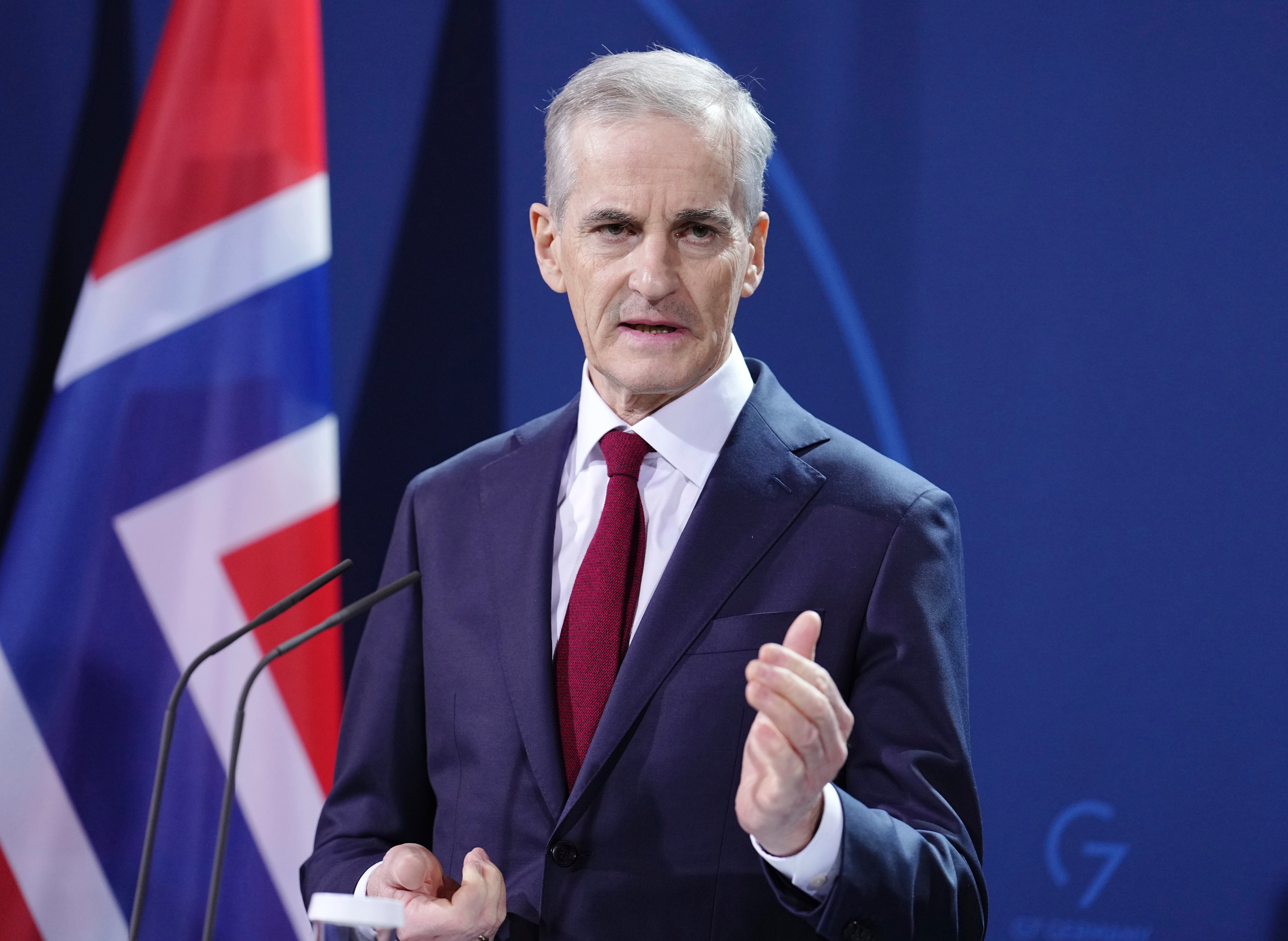Norway's PM says Russia build-up is `a sign of weakness'
Norway’s prime minister says he believes it’s “a sign of weakness” that President Vladimir Putin has to express Moscow’s political views by an “extraordinary” military buildup

Norway’s prime minister, whose country borders Russia and is a founding member of NATO, said Wednesday he believes it’s “a sign of weakness” that President Vladimir Putin has to express Moscow’s political views by an “extraordinary” military buildup.
Jonas Gahr Støre said in an interview with The Associated Press that he calls it a sign of weakness because it’s at the negotiating table where issues that matter to people should be discussed, not by “that kind of military demonstration,” and by pursuing Russia’s interests where “the weapons will speak.”
He said he thinks Putin’s demand now for guarantees — including that NATO will never admit neighboring Ukraine and other ex-Soviet nations as members — is a result of the loss of post-Cold War communications channels and dialogue that led to differences being settled through negotiations following after Russia’s invasion of Ukraine’s Crimean Peninsula in 2014.
“So there have been more kind of animosity and destructive relations among countries that need to engage,” Støre said.
The Kremlin has repeatedly denied it is planning to invade neighboring Ukraine, but the U.S. and its NATO allies are worried about Russia deploying an estimated 100,000 troops near Ukraine and launching a series of sweeping military maneuvers. The Norwegian prime minister said his country sees this buildup with part of Russia’s Northern Fleet “sailing along our coast.”
“Politically, for me, it is a sign of weakness in a way that you have to express your views and your interest by that kind of military demonstration, because it is at the table when you deal with the issues that matter to people,” Støre said.
Russia warned Wednesday it would quickly take “retaliatory measures” if the U.S. and its allies reject its security demands, which also include that NATO will roll back troop deployments in other former Soviet bloc nations. Some demands, like pledging never to admit Ukraine, are nonstarters for NATO, creating a seemingly intractable stalemate that many fear can only end in a war.
Asked what he thinks Putin’s “game plan” is, Støre replied, “he wants to leave us guessing.”
The Norwegian prime minister stressed that Europe in the 21st century doesn’t solve political issues by a single nation, and the Russian guessing game indicates that “we should be firm, predictable and clear on principles.”
While Ukraine is not a NATO member and therefore does not come under its collective defense umbrella, Støre said, “Europe and the West should be very clear that if there is infringement on the border of a modern state in Europe these days there will be reactions.”
Europe and the West should be and are pursuing negotiations, he said, pointing to the U.S. and NATO dialogues with Russia .
And there are “ample opportunities” to pursue confidence-building and disarmament measures and other procedures to provide security for countries living next to each other “without going down that terrible path of war,” Støre said. His country holds the U.N. Security Council presidency this month and he presided at its meeting Tuesday and Wednesday.
While Norway is “a very loyal and active partner in NATO,” the prime minister said it has been at peace with neighboring Russia for 1,000 years and has a relationship with Moscow to maintain this peaceful relationship, which is a key priority of Norwegian foreign policy.
There have been reports that Norway’s Nordic neighbors, Sweden and Finland, which are not NATO members, may be interested in joining the alliance.
“Let that be their free choice,” Støre said. “Nobody else can come from outside and dictate their choice.”
“I don’t see today that enlargement of NATO is on the agenda of NATO,” the Norwegian minister said, but it should treat the rising aspirations of democratic states “in a decent fashion.”
Bookmark popover
Removed from bookmarks